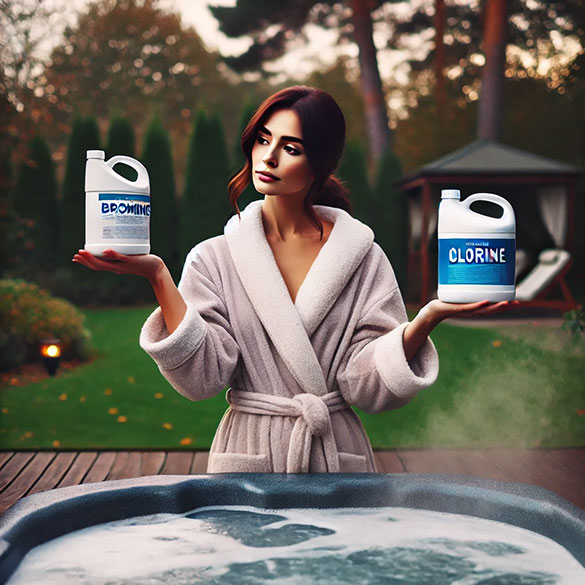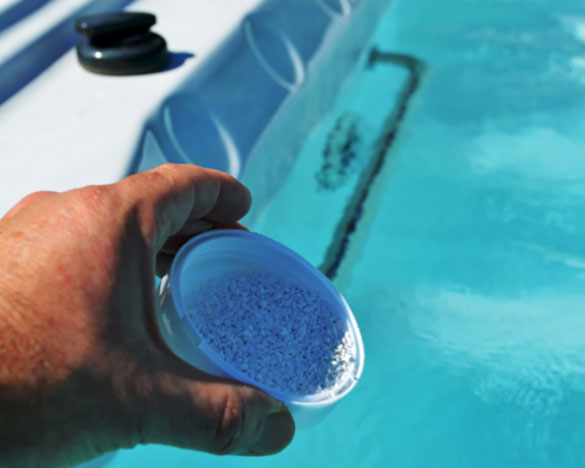Should I use chlorine or bromine in my hot tub?

Choosing between chlorine and bromine for your hot tub involves considering several factors, including maintenance preferences, water conditions, and personal sensitivity.
Here's a comparison to help you decide:
Chlorine
Effectiveness: Chlorine is a powerful sanitiser that's effective at killing bacteria and viruses. It's fast-acting and works well to remove organic contaminants from the water.
Cost: Generally, chlorine is less expensive than bromine, making it a cost-effective option for many hot tub owners.
Water Temperature: Chlorine is somewhat less stable and less effective at high temperatures, which can be a downside for hot tubs that operate at elevated temperatures compared to pools.
Maintenance: Chlorine requires regular monitoring and more frequent balancing of the water's pH and chlorine levels.
Odour and Skin Sensitivity: Chlorine often has a stronger smell, and some people find it more irritating to the skin and eyes compared to bromine.




Bromine
Effectiveness: Like chlorine, bromine is effective against bacteria and viruses. It is particularly more effective than chlorine at higher water temperatures, making it ideal for hot tubs.
Stability: Bromine is more stable in warm water and tends to remain effective over a wider pH range, reducing the need for constant adjustments.
Reactivation: Unlike chlorine, bromine can be reactivated with a small amount of treatment (usually adding an oxidiser), potentially reducing the amount needed over time.
Odour and Sensitivity: Bromine generally has a less pronounced odour compared to chlorine, and it’s often gentler on the skin and eyes.
Cost: Bromine is typically more expensive than chlorine, but it can offer better performance in hot tubs.
Considerations for Decision
Temperature: If you keep your hot tub at higher temperatures, bromine may offer better stability and performance.
Maintenance: Decide if you are comfortable with consistent monitoring and adjustments. Bromine might require less frequent attention.
Budget: Consider the cost difference in chemicals over time.
Sensitivity: If you or your guests have sensitive skin or are sensitive to chlorine odours, bromine may be a better choice.


Ultimately, both options can effectively sanitise your hot tub, so it's about balancing convenience, comfort, and cost based on your specific needs and preferences.





